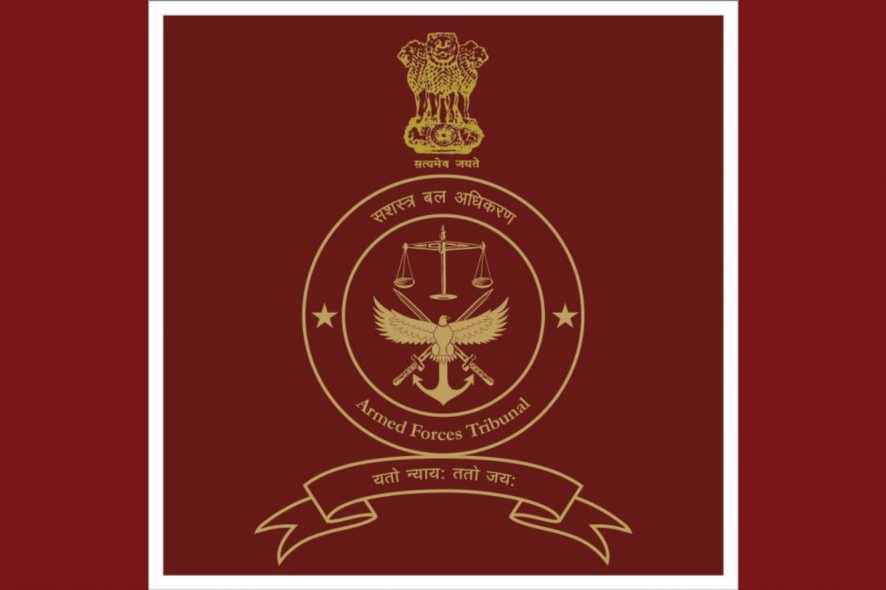Armed Forces Tribunal (AFT): Justice S.V.S. Rathore and Air Marshal BBP Sinha (Member) partly allowed an application to consider applicant’s disability as aggravated by military service. The applicant filed a petition for grant of disability pension with a delay of 09 years, 09 months and 09 days. He was commissioned fully fit as an officer in the Indian Army in 1972 and was discharged from service in low medical category in 1997. The Release Medical Board (RMB) assessed his disabilities (i) I.H.D. ICDN 411 (CAD) at 11-14% for two years and (ii) Ankylosing Spondylitis at 11-14% for two years, composite assessment at 20% for two years as neither attributable to nor aggravated (NANA) by military service. Therefore, his disability pension claim was rejected. The respondents contended that the applicant approached the Tribunal after a gap of 20 years and such inordinate delay cannot be condoned. The Tribunal rejected this contention of the respondents primarily because the pension is a recurring cause of action. They further contended that disabilities of the applicant have been regarded as NANA by the RMB, hence the applicant is not entitled to disability pension. They further submitted that an incumbent is granted disability pension when invalidated out of service on account of a disability which is attributable to or aggravated by military service and is assessed at 20% or over. On the other hand, the applicant argued that he had picked up these diseases due to stress and strain of service.
The Tribunal went on answering as to whether the disabilities of the applicant are attributable to or aggravated by military service? The Tribunal relied on Dharamvir Singh v. Union of India, (2013) 7 SCC 316 to address the law on attributability/aggravation of a disability where the Supreme Court took note of the provisions of the Pensions Regulations, Entitlement Rules and the General Rules of Guidance to Medical Officers to sum up the current legal position. ‘Ankylosing Spondylitis’ is an inflammatory disease which, over time, can cause some of the vertebrae in the spine to fuse resulting in a hunched-forward posture. This disease has no known specific cause, though genetic factors seem to be involved. Since the cause of the disease is not clearly known and there is no mention of genetic loading in RMB, therefore, the Tribunal gave the benefit of doubt in favour of the applicant.
The Tribunal held that the RMB had denied attributability/aggravation to the applicant only by endorsing a cryptic sentence that his disability is not connected with military service and that the disabilities of the applicant should be considered as aggravated by military service. The applicant was held entitled to 20% disability element (composite) for both the disabilities for two years after discharge which would round off to 50%. However, the Supreme Court in the case of Shiv Dass v. Union of India, (2007) 9 SCC 274 held that arrears of disability pension are to be restricted to three years prior to the filing of the application if the same has been filed belatedly and the delay is condoned. Since the applicant approached the Tribunal after a gap of more than 09 years, he was not entitled to any arrears due to the law of limitations.[DS Jasrotia v. Union of India, 2019 SCC OnLine AFT 3883, decided on 15-07-2019]






